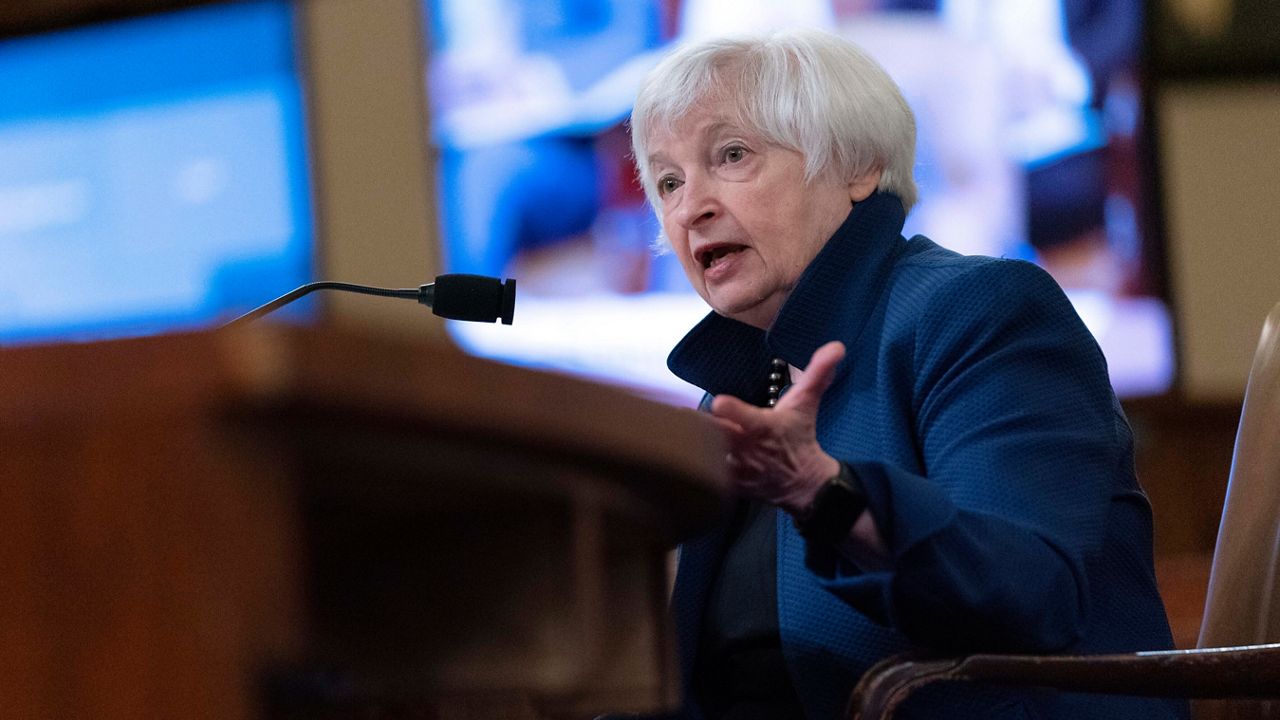Finance ministers from the Group of Seven industrial powers on Friday pledged to put in place a system designed to cap Russia's income from oil sales, an idea that the nations' leaders had promised to explore at their summit in June.
The aim is to reduce Russia's revenues and its ability to fund its war in Ukraine, while also limiting the invasion's impact on global energy prices.
In a statement issued by Germany, which chairs the G-7 this year, the ministers said they "confirm our joint political intention to finalize and implement a comprehensive prohibition of services which enable maritime transportation of Russian-origin crude oil and petroleum products globally."
Providing those services "would only be allowed if the oil and petroleum products are purchased at or below a price ('the price cap') determined by the broad coalition of countries adhering to and implementing the price cap," they added.
The statement did not give any figure for a potential price cap and also did not specify when the G-7 aims to finalize the plan. It said that "we invite all countries to provide input on the price cap's design and to implement this important measure."
When they met in June in Germany, the leaders of the G-7 — the United States, Germany, France, Britain, Italy, Canada and Japan — agreed to explore the feasibility of measures to bar imports of Russian oil above a certain level.
The price cap — pushed by U.S. President Joe Biden — could work because the service providers are mostly located in the European Union or the U.K. and thus within reach of sanctions. To be effective, however, it would have to involve as many importing countries as possible, in particular India, where refiners have been snapping up cheap Russian oil shunned by Western traders.
"Today, the G7 took a critical step forward in achieving our dual goals of putting downward pressure on global energy prices while denying Putin revenue to fund his brutal war in Ukraine," Treasury Secretary Janet Yellen wrote in a statement. "By committing to finalize and implement a price cap, the G7 will significantly reduce Russia’s main source of funding for its illegal war, while maintaining supplies to global energy markets by keeping Russian oil flowing at lower prices."
"Today’s action will help deliver a major blow for Russian finances and will both hinder Russia’s ability to fight its unprovoked war in Ukraine and hasten the deterioration of the Russian economy," Yellen wrote. "We have already begun to see the impact of the price cap through Russia’s hurried attempts to negotiate bilateral oil trades at massive discounts."
Yellen added that "while we’ve seen energy prices ease in the United States, energy costs remain a concern for Americans and continue to be elevated globally."
"This price cap is one of the most powerful tools we have to fight inflation and protect workers and businesses in the United States and globally from future price spikes caused by global disruptions," she continued.
The U.S. has already blocked Russian oil imports, which were small in any case. The European Union has decided to impose a ban on the 90% of Russian oil that comes by sea, but the ban does not take effect until the end of the year.



